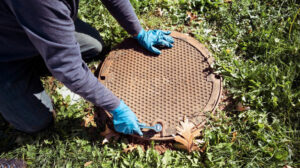
Your Ultimate Guide to Selling North Carolina Farmland
Table of Contents
- Introduction
- Land Scams on the Rise: Protecting Yourself From Scammers
- How to Avoid Scams and Ensure Payment Security When Selling Land
- Ready, Set, Sell!
- Listing Your Land: Finding the Right Buyer
- The Fast Track to Selling Your Land: Selling to a Land Investor
- The Closing Stretch: Sealing the Deal from Out-of-state
- Conclusion
North Carolina’s farmland is more than just scenic beauty; it’s a powerful economic engine and a source of deep-rooted pride. With 8.1 million acres of fertile land spread across its 100 counties, agriculture is a driving force in North Carolina. In fact, according to the NC Department of Agriculture & Consumer Services, the agriculture and agribusiness industries in North Carolina generated a combined economic impact of $111.1 billion in 2023. This includes value-added income from the farm to the consumer, sales revenue, and payroll for those employed in the agricultural sector, demonstrating the significant role these industries play in the state’s economy.

But North Carolina’s farmland offers more than just economic strength; it boasts remarkable diversity. Farmers cultivate a wide array of crops, taking advantage of the state’s varied geography and climate. From the traditional tobacco fields and cotton plantations of the east to the bountiful apple orchards and evergreen Christmas tree farms nestled in the western mountains, the state’s agricultural output is remarkably diverse. And let’s not forget the significant contribution of livestock to this landscape, with poultry, swine, and cattle operations found throughout the state. In terms of cash receipts from farming, livestock, dairy, and poultry contribute 74.3%, while crops make up 25.7% of the total. North Carolina is also a major player in certain crops, being the top producer of sweet potatoes in the U.S., accounting for about 54% of all sweet potatoes grown in the country. (Source: Economic Research Service, USDA) (Source: Economic Research Service).
Who is this guide for?
This guide is designed to be a valuable resource for a wide range of individuals involved in the North Carolina farmland market, including:
- Farmers preparing for retirement – If you’re a farmer considering selling your land to embark on a well-deserved retirement, this guide will provide you with the necessary knowledge and resources.
- Individuals who have inherited farmland – Inheriting farmland can bring a mix of emotions and uncertainties. This guide will help you understand your options and navigate the complexities of selling inherited property.
- Investors exploring agricultural opportunities – For those seeking to diversify their investment portfolio with the addition of agricultural land, this guide offers valuable insights into the North Carolina farmland market.

Understanding the NC Farmland Market
The North Carolina farmland market is a dynamic landscape influenced by a variety of factors. Understanding these forces is crucial for both buyers and sellers to make informed decisions.
Residential Demand for Farmland
One of the most significant trends is the increasing demand for rural properties for both residential and commercial development. As urban areas become more congested and expensive, many individuals and families seek a more peaceful lifestyle in rural settings, driving up the value of farmland suitable for home construction. At the same time, developers are also eyeing large tracts of farmland located near utilities and with access to infrastructure, recognizing their potential for creating residential subdivisions, shopping centers, or other commercial ventures. This combined demand from individuals seeking a rural lifestyle and developers seeking development tracts further intensifies competition for farmland and drives up prices, often creating a significant price premium compared to land intended solely for agricultural use.
Market Dynamics
Beyond residential demand, several other factors shape the farmland market:
- Current Trends –The rise of organic farming, agritourism, and sustainable agriculture practices are influencing farmland values. Consumers are increasingly interested in locally sourced, organic food, creating new opportunities for farmers and driving demand for land suitable for these practices.
According to the
2022 Census of Agriculture, the number of organic farms in North Carolina increased by 15% from 2017 to 2022, reflecting this growing consumer preference. The state counts 22,940 new and beginning producers, up from 20,298 in 2017. Agritourism, which involves offering recreational activities and experiences on farms, is another growing trend that can add value to farmland by diversifying income streams. - Factors Affecting Value – Beyond location and development potential, several key factors influence farmland value:
- Soil Quality –Fertile soil is essential for agricultural productivity. The NC Department of Agriculture & Consumer Services offers soil testing services to help landowners assess their soil quality and understand its potential for various crops.
- Water Access – A reliable water source, whether through irrigation rights, wells, or surface water access, is crucial for farming operations and significantly impacts land value. North Carolina has specific regulations regarding water rights, and it’s essential for landowners to understand these legal frameworks.
- Infrastructure –The presence of well-maintained buildings, fences, irrigation systems, and other infrastructure can increase the value of farmland by enhancing its productivity and efficiency.
- Proximity to Markets – Farmland located near urban centers, processing facilities, or transportation routes benefits from reduced transportation costs and easier access to markets, increasing its overall value.

Market Data and Statistics
To make informed decisions in the farmland market, it’s essential to have access to relevant data. Here are some key statistics to consider:
1. Average Farmland Prices – The average price of farmland in North Carolina in 2024 is $5,101 per acre, with values ranging from $8400 in high-value areas to lower prices in other regions. This represents a 7% increase from 2023 and continues a steady upward trend since 2020. This data, from the USDA’s 2024 Land Values, indicates a strong and growing market for North Carolina farmland.
2. Average Residential Land Prices – In North Carolina, farmland values average $5,150 per acre, according to USDA reports. In contrast, residential land prices vary significantly, often averaging $45,000 per acre or more in suburban and high-demand areas. In rapidly growing regions like Wake County, residential land can exceed $100,000 per acre, especially near major highways and urban centers. This price gap highlights why many landowners choose to sell farmland for residential development, as rezoning and infrastructure improvements can multiply land values.
3. Trends in Farmland Values – The estimated market value of land and buildings in North Carolina has seen a significant increase. The average per acre value in 2022 was $5,482, compared to $4,642 in 2017, representing an 18.1% rise. This substantial growth in farmland value highlights the increasing demand and potential for appreciation in this market. Farmland values have been steadily increasing in North Carolina, driven by factors like residential demand, population growth, and the increasing value of agricultural products. This trend is likely to continue, making farmland a potentially attractive investment.
4. Declining Number of Farms:. In 2022, North Carolina had 42,814 farms, a decrease of almost 8 percent from 2017, and 8.1 million acres of farmland, a decrease of almost 4 percent from 2017. In 2022, North Carolina ranked 8th in the U.S. in the value of agricultural products sold, with $18.7 billion.
5. Farm Operations by Ownership Type – The Census of Agriculture calculates farm ownership by the farm’s legal status for tax purposes. The majority of farm operations in North Carolina are run by families or individuals (83.5%), followed by corporations (8.9%) and partnerships (6.4%). Other types of ownership, such as estates, trusts, and institutions, make up the remaining 1.2%. This data underscores the significant role family farms play in the state’s agricultural landscape.
6. Farm Size – While there’s a wide range of farm sizes in North Carolina, the majority of farms (47.9%) are small, with 1-49 acres. However, larger farms (1,000+ acres) control a significant portion (44.7%) of the total farmland acreage. This indicates a diverse agricultural landscape with both small family farms and larger commercial operations.
7. Age of Principal Operators – The average age of principal farm operators in North Carolina is 58.1 years old, with the largest percentage of operators falling in the 55-64 age group (27.2%). This data suggests a potential transition in farm ownership in the coming years as older farmers retire, creating opportunities for new farmers and investors.
We are very pleased with the fair offer we received from Acrewell Land Company for our land. Alexander Reese and Marilag walked us through all aspect of the selling process, which made us feel more comfortable that we were making the right choice. I fully recommend this company to anyone who is considering selling their property to Acrewell.
I am absolutely delighted to write a glowing review for Acrewell's recent land purchase from us. The entire experience of transitioning the land ownership was incredibly smooth and efficient, thanks to Acrewell's exceptional professionalism and clear communication throughout the process.
Acrewell is awesome! I love the weekly updates. Marilag was very professional. She genuinely cared that my needs were met and questions answered. This has been a very easy transition. I highly recommend Acrewell.
Preparing Your Farmland for Sale
Selling farmland involves more than just sticking a “For Sale” sign on the fence. To attract the right buyers and secure the best possible price, careful preparation is key.
Dealing with Farm Leases
Farm leases will rarely prevent land from being sold, however it’s important to understand the obligations that farm leases place on the landowner before and even beyond the date of the sale, as farmers maintain legal protections to harvest marketable crops through the current agricultural year and sometimes beyond.
In North Carolina, farm leases are governed by specific legal frameworks, including the state’s agricultural tenancy statute. These leases typically run on an annual basis, with the “agricultural year” varying by county, starting either on January 1st or December 1st. It’s important to understand the terms of your lease agreement, whether it’s written or verbal, and how they might affect the sale.
Key Aspects of Farm Leases in North Carolina
- Lease Duration and Renewal – Farm leases in North Carolina typically run annually, with the “agricultural year” varying by county. In most counties, it starts on January 1st, but in 25 counties, it begins on December 1st. This distinction is important because it affects the timing of lease renewals and terminations. Leases will generally automatically renew unless the landowner takes action.
- Termination of Tenancy – To terminate a farm lease, landowners must provide written notice to the tenant at least 30 days before the start of the next agricultural year. This notice period is crucial to avoid inadvertently extending the lease and potentially delaying the sale of the property.
- Tenant Rights – Tenants have certain rights under North Carolina law, including the right to remain on the property until the end of the current agricultural year, even if the property is sold. This means a new owner cannot simply evict a tenant farmer immediately after purchasing the land. This protection ensures stability for tenant farmers and allows them to complete their current farming operations.
- New Owner Obligations – When farmland is sold, any new owner must assume the existing farm lease. However, they have the option to terminate it before the next renewal period, giving them flexibility in managing the property.
- Rent Proration – If the property is sold mid-year, any farm rent payable must be prorated between the previous owner and the new owner for the portion of the year each owned the property. This ensures a fair distribution of rental income.
- Ownership of Crops – An important legal point in North Carolina is that any crops grown on the land are considered the property of the landowner until the rent is paid. Once the rent is paid, the crops become the personal property of the tenant farmer. This distinction can be crucial in the event of a sale or dispute.
If you’re unsure about how to proceed with an existing farm lease, it’s always best to consult with an attorney specializing in agricultural law. They can help you navigate the legal complexities and ensure a smooth sale process. The North Carolina Bar Association can help you find qualified attorneys in your area. Visit the NC Bar Association website.

Marketing Your Farmland
Once you’ve assessed your property and understand its unique value proposition, it’s time to put on your marketing hat and attract the right buyers.
Highlighting Key Features: What Makes Your Farmland Special?
In a competitive market, it’s crucial to showcase the unique selling points of your farmland. Tailor your marketing message to highlight the features that resonate most with your target audience.
- For farmers, emphasize the agricultural potential of the land, showcasing the fertility and suitability of the soil for specific high-value crops. Provide soil test results and information about past yields to demonstrate the productivity of the land. Also, emphasize the availability and reliability of water sources, especially if you have ample water rights or access to irrigation infrastructure. Highlight well-maintained buildings, fences, irrigation systems, and other infrastructure that can enhance productivity and efficiency.
- When marketing to real estate investors, highlight the diverse opportunities your farmland offers. Showcase its potential for development, income generation through farming or leasing, and long-term appreciation. Emphasize any tax advantages associated with agricultural land ownership and the potential for conservation or agritourism ventures. This multifaceted approach will appeal to a wider range of investors and increase your chances of a successful sale.
- For residential buyers, showcase the lifestyle benefits of owning farmland. Highlight the beauty of the landscape, rolling hills, mature trees, or water features. Emphasize the peacefulness and seclusion of the property, highlighting its potential as a retreat from the hustle and bustle of city life. Also, highlight opportunities for gardening, raising livestock, or enjoying recreational activities like hiking or horseback riding. While emphasizing the rural setting, also highlight the proximity to urban centers, schools, and other amenities that offer convenience and access to services.
- If you’re looking to attract conservationists, emphasize the ecological value of the land. Showcase unique ecosystems, wildlife habitats, or water resources. If the property has conservation easements, highlight their benefits for protecting natural resources and potential tax advantages. Emphasize the presence of diverse plant and animal species, highlighting the ecological importance of the land.
Professional Photography and Videography
High-quality visuals are essential to capture the beauty and potential of your farmland, regardless of the buyer’s interests. Invest in professional photography and videography to showcase the property’s best features. Capture stunning aerial views, highlight the fertile fields, showcase any attractive buildings or infrastructure, and emphasize the unique character of the land. Highlight potential by showing potential buyers how they could utilize the land, whether it’s for farming, building a dream home, or enjoying recreational activities.
Marketing Channels
Utilize a variety of marketing channels to reach your target audience. These could include:
- Online Listings – List your property on popular online platforms like Land and Farm and Farmflip to reach a wide audience of potential buyers. Use high-quality photos and detailed descriptions to attract attention. Consider listing on platforms that cater to specific buyer types, such as those specializing in rural properties or investment opportunities.
- Local Publications – Advertise in local newspapers and agricultural publications to target buyers within your region who are more likely to be familiar with the local agricultural landscape.
- Agricultural Networks – Leverage your connections within the agricultural community to spread the word about your property. Attend farm shows, connect with local agricultural organizations, and network with potential buyers.
- Real Estate Agents – Partner with a real estate agent who specializes in rural properties and understands the needs of different buyer profiles. They can help you market your property effectively and reach a wider audience.
- Social Media – Use social media platforms like Instagram and Facebook to showcase the visual appeal of the property and reach a wider audience. Share stunning photos and videos, highlight key features, and engage with potential buyers online.

Closing the Deal
Once you’ve found a potential buyer, it’s time to finalize the sale. This involves:
- Negotiation – Be prepared to negotiate a fair price and terms. Research the market, highlight your property’s unique features, and understand the buyer’s intentions to get the best deal.
- Due diligence – Buyers will want to verify the property’s condition and legal status. This may include title searches, surveys, and environmental assessments. Be prepared to provide any necessary documentation.
By being prepared and proactive during the closing process, you can help ensure a smooth and successful sale of your farmland.
Conclusion
Selling farmland in North Carolina is a multifaceted process that requires careful planning, preparation, and execution. By understanding the market dynamics, assessing your property thoroughly, marketing it strategically, and navigating the legal and financial complexities, you can increase your chances of a successful and satisfying sale.
If you’re considering selling your North Carolina farmland, contact the experts at Acrewell for personalized guidance and support throughout the process. We’re committed to helping you achieve your goals and maximize the sales prospects of your farmland.

Connect With Us
Please fill out the form below and we’ll be in touch.
Table of Contents
Post Categories
Latest Posts

Claim Your Offer
Want to Sell Your Farmland for the Best Price? Let's Talk!